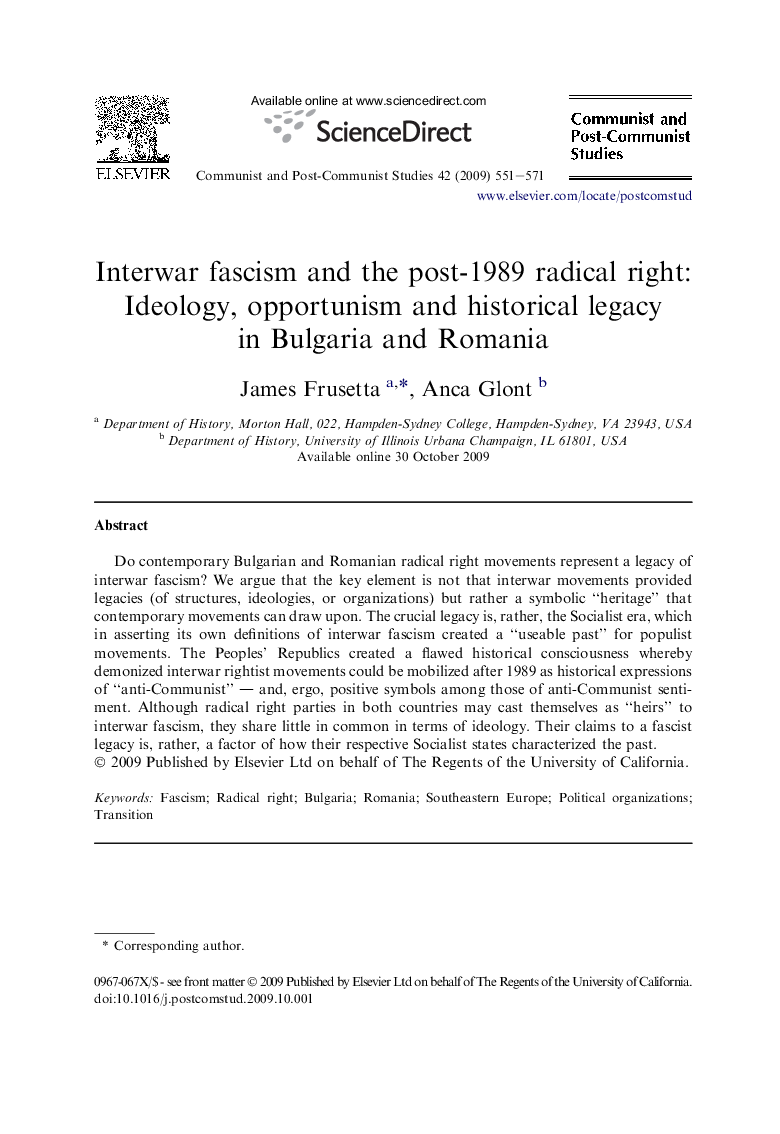| Article ID | Journal | Published Year | Pages | File Type |
|---|---|---|---|---|
| 1046548 | Communist and Post-Communist Studies | 2009 | 21 Pages |
Do contemporary Bulgarian and Romanian radical right movements represent a legacy of interwar fascism? We argue that the key element is not that interwar movements provided legacies (of structures, ideologies, or organizations) but rather a symbolic “heritage” that contemporary movements can draw upon. The crucial legacy is, rather, the Socialist era, which in asserting its own definitions of interwar fascism created a “useable past” for populist movements. The Peoples’ Republics created a flawed historical consciousness whereby demonized interwar rightist movements could be mobilized after 1989 as historical expressions of “anti-Communist” — and, ergo, positive symbols among those of anti-Communist sentiment. Although radical right parties in both countries may cast themselves as “heirs” to interwar fascism, they share little in common in terms of ideology. Their claims to a fascist legacy is, rather, a factor of how their respective Socialist states characterized the past.
